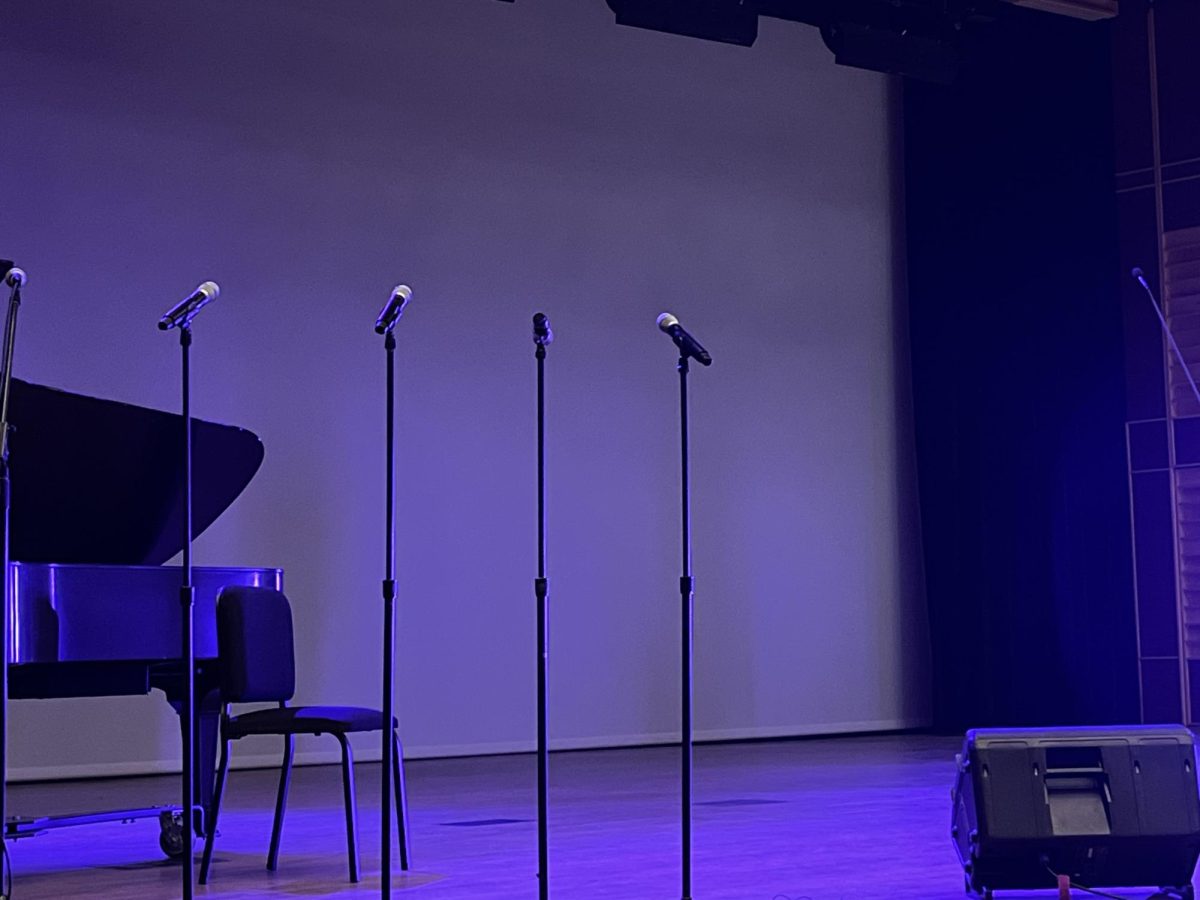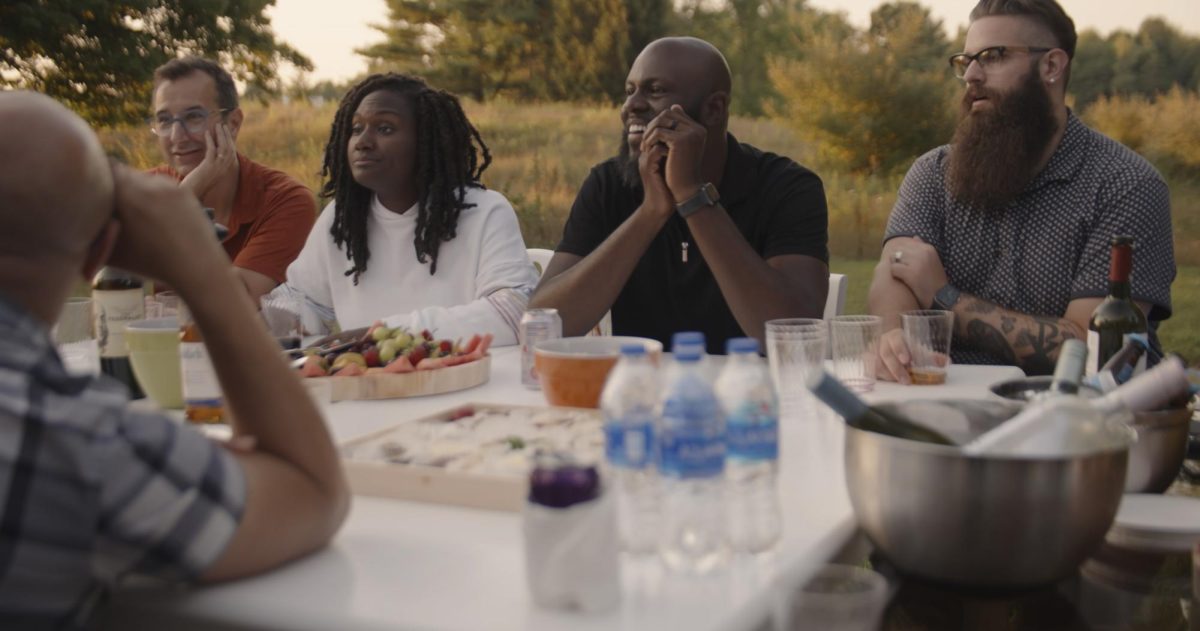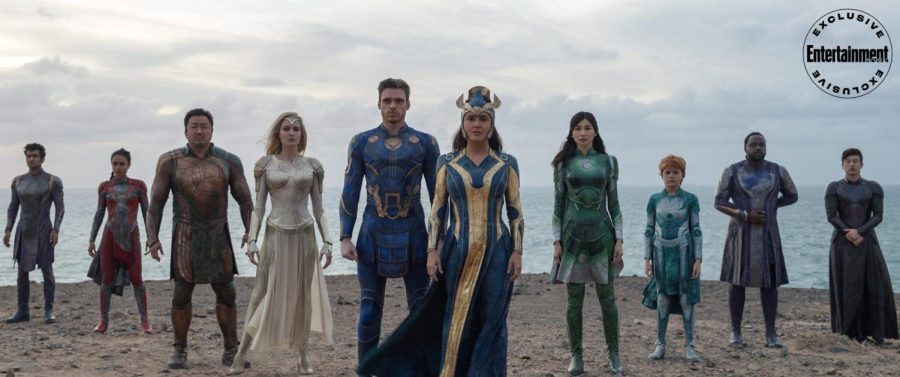Last Thursday, Nov. 14, Calvin’s Healthy Dialogue Series hosted a viewing and panel discussion of the documentary 1946: The Mistranslation that Shifted a Culture.
The documentary traces the stories of three individuals with complex relationships to the Christian church. Sharon “Rocky” Roggio, the film’s director, is a member of the LGBTQ+ community who left home after coming out to her conservative Christian parents. Her father, Pastor Salvatore “Sal” Roggio, believes homosexuality is a sin, and the film highlights the complexity of pain, love, hope, and faith in their relationship. Ed Oxford, a gay Christian, struggled to reconcile his faith and sexuality, and now researches “how the Bible has been weaponized against LGBTQ people.” Finally, Kathy Baldock, raised conservative Christian with a traditional view of sexuality, began digging into the Bible and discrimination of the LGBTQ+ community in the church after learning that her close friend was lesbian.
However, it is the story of the titular 1946 Revised Standard Version (RSV) translation of the Bible that forms the intellectual focus of the film. This translation was the first, in any language, to include the word “homosexual.” The first verse in which this English term appeared was 1 Corinthians 6:9-10. The original Greek uses the words malakoi and arsenokoitai which were then combined and translated as one word – “homosexual.” This translation move shifted the words’ meaning from describing an act to describing a kind of person. The RSV’s choice of the word homosexuality was challenged byDavid S. Fearon, a pastor from Canada whose concerns about the word choice ultimately led to the term’s removal in the updated 1971 version. However, by that time, The Living Bible, New International Version, and New American Standard Version, had followed the RSV’s example and included “homosexual” in their translations as well.
The documentary then goes on to address the “clobber passages,” a set of Bible verses frequently cited as explicitly condemning same-sex relations. Through interviews with various New Testament and Old Testament scholars, the documentary highlights the necessity of reading these verses in context, with an understanding that the Bible is rooted in culture and these texts are time-bound.
The documentary ends with a sense of hope for reconciliation between the Christian church and the LGBTQ+ community. “We need to walk humbly in realizing that human beings can make mistakes,” one scholar said. Another reflected, “as long as we are breathing, there is still hope…as long as we are arguing with one another, there is still hope.”
After the film, Trevor W. Thompson, adjunct professor of at Calvin and featured scholar in 1946, facilitated a discussion of the film with David Lincicum, associate professor of theology at Notre Dame University and Dr. Jeffrey Weima, professor of New Testament at Calvin Theological Seminary. Both scholars, who had opposing conclusions regarding the relationship between homosexuality and Christianity, emphasized the film’s strength in “show[ing] us the humanity involved in both sides of the conversation” but questioned the interpretative moves the scholars made. Weima observed that the 1946 RSV translation, although the focus, is not delivered well. He also noted that the documentary had not interviewed scholars who hold the traditional view.
Lincicum and Weima finished by expressing the need for deep listening, love and truth across divides.









